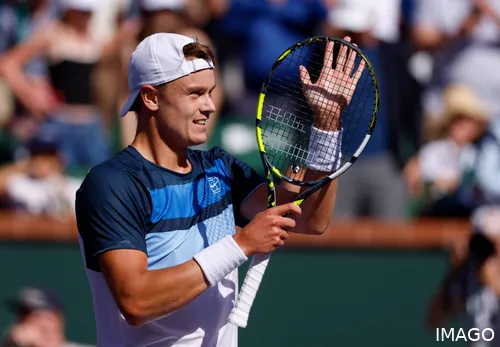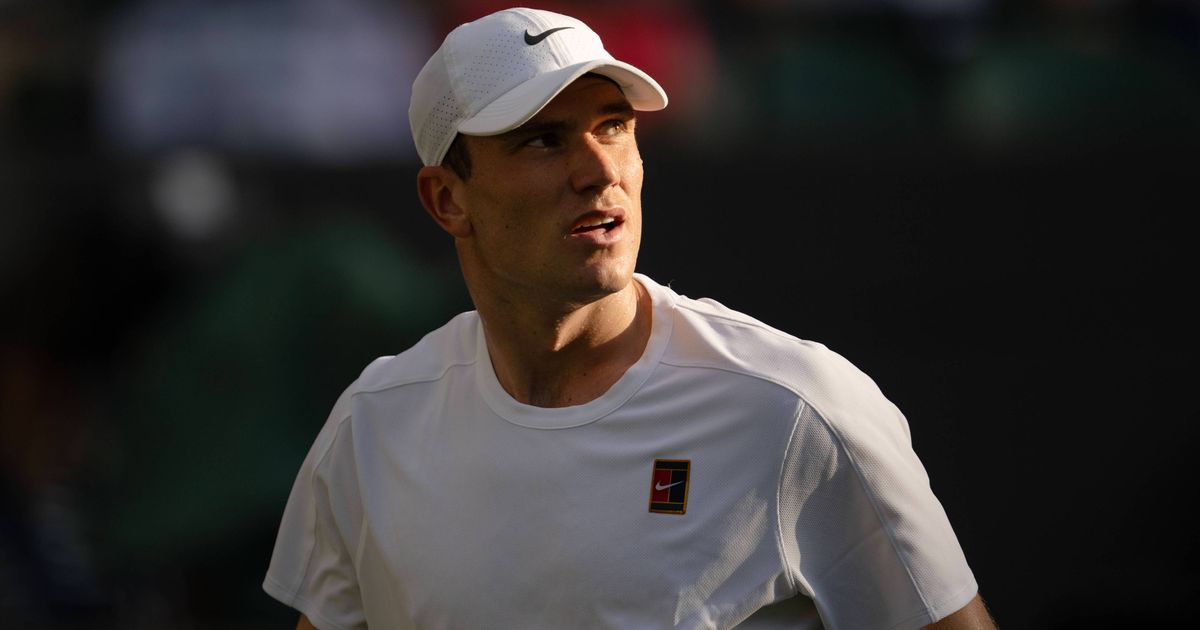Jack Draper has voiced his concerns over the ATP. He has slammed them over the new Saudi Masters, a severe lack of transparency and communication between ATP and players, his ideal schedule and how he might fall out of love with the sport.He started by confirming that it is not about the money. “I mean, like I said, for me, this isn’t about the money. The ATP have had really good intentions trying to do that, and players have really pushed for more money in the sport. They’ve tried to meet that demand, but I think by doing it the way they have, it’s kind of backfired a bit,” Draper began on The Tennis Podcast.
“I haven’t heard one player say they like it. Not one coach, not one fan. And I think what’s most important for the ATP is that the players are the most important asset. If something isn’t working, we need to be able to speak up and find solutions.”
Saudi Masters not to Draper’s liking
The 10th Masters 1000 event will commence in 2028, with huge sums of prize money poised to be collected by fortunate stars. It goes against the argument of the already jam-packed calendar, which then highlights a dilemma for many tennis players.
“Then you’ve got the Saudi event, which I think people need a bit more common sense around. If you’re a player and it’s the highest prize pool in tennis, it’s really hard to turn that opportunity down,” Draper admitted. “People say, ‘Why would you go there?’ But the way the ATP structures things — especially with the Masters 1000s and the punishments if you don’t play them all — makes it tough.”
He continued to talk about the end of year prize pool. “This year, for example, Yannick [Sinner] and Carlos [Alcaraz] will head the bonus pool, but because they missed three events, they’ll lose almost all of it apart from their performance bonus. So they could make more money in one night of work at the Saudi event than a whole year on tour.”
He doubled down against the ATP. “The ATP always says, ‘You can pick and choose your tournaments.’ But that’s not the full truth. It’s naïve, because you have to understand the mindset of a player — you want to keep climbing the rankings.”
Lower ranked players not getting satisfactory treatment
It is not just top players, like Draper, who are in the firing line. It is lower ranked players who depend on this end of year pool.
Draper explained the reason for this: “But for lower-ranked players, the bonus pool really matters. The punishments are tough. And with these extended events, you also have to consider the financial cost — coaches, family, support teams on the road — it’s expensive. It’s not just money in your pocket.”
The British number one called out the Chairman of the ATP, Andrea Gaudenzi. “I love this sport and want it to go in a good direction, but this schedule issue is never-ending. Players need to come together — and not just through the media with ‘he said, she said.’ We need to sit down with the ATP, with Andrea Gaudenzi, and have a proper conversation about where tennis is going and find real solutions,” he said.
More transparency – players to have a say
Draper has not been the first player to call out the lack of transparency in the sport. “And honestly, that’s one of the biggest problems in tennis — everything is so fragmented,” he stated. “The ATP, ITF, WTA, and Grand Slams aren’t on the same page. They don’t communicate well, they’re not aligned, and so players don’t even know who to go to. So many decisions are made without the players’ voices being heard.
The decision to extend Masters 1000 events to 12-days was not a popular one for the players. “There’s been growing frustration. The introduction of 12-day Masters events has really brought that to the surface. Players of my generation are speaking up more now and trying to understand where tennis actually stands.” Not just in the schedule, but revenue. “The Grand Slams have increased prize money, but their revenue share with players is still very low. We want more transparency,” he said.
“The ATP does great things — like the player pension fund, mental health support, and general player welfare,” he acknowledged. “But the Grand Slams don’t contribute to that at all. They’re the biggest events in the sport, and they should be helping fund that. Ultimately, players just want a seat at the table — to be part of decision-making, not just reacting to it.”
Draper’s Ideal schedule
The former US Open semi-finalist would go on to lay out his ideal schedule. “Yeah, I’d like to see them [Masters 1000] go back to maybe 9, 10, or 11 days. That’s realistic. It would give players more time to prepare and more days off the road.”
“Of course, revenue would drop slightly — fewer days means less income. Personally, I’d take a cut from the bonus pool if it meant fixing that,” he confessed. “Players can’t have their cake and eat it — if we want change, we have to be willing to compromise. The ATP meant well by trying to put more money in players’ pockets, but it’s backfired — most players hate it. So, we need to find that middle ground.”
Injury concerns for the future
The equation is simple: the more tennis played, the more injuries going to occur. Draper found this out the hard way, and has since witnessed the likes of Holger Rune pick up a devastating achilles injury, and numerous retirements in the European indoor hardcourt swing.

Holger Rune is set for a 9-12 month spell on the sidelines
I really hope it doesn’t get to that. I hope players speaking out now can make a difference before something serious happens,” Draper said. “Tennis is so fragmented right now — so many organisations not talking to each other. If the people in charge don’t start focusing on the players, the sport’s core product, things will fall apart.
“We’re already seeing more injuries, more withdrawals, more burnout. I’m honestly sick of all the talk and not enough action. Players aren’t politicians — we’re trying to explain how we feel and push for positive change. People always get annoyed when athletes speak, but this isn’t complaining — it’s caring about the sport. We just want the people in power to listen, work together, and make tennis better.”
Fall out of love with the sport
Throughout this interview, Draper constantly reverted back to his reasons for these protests: to make the sport better. The results if these comments are not picked up by the ATP could mean Draper could lose his love for the sport.
“Exactly,” when he was pitched that question. “That’s the heart of it. I love tennis — we all do — but when it’s constant, with no break, you can lose that love. You want to feel excited to play the next big event, not just feel stuck on a treadmill. The sport has evolved — the rallies are longer, players are fitter, the courts are slower. Everything’s more demanding.”
He pleaded once more: “I just hope the powers that be listen and act — not for money, but for the long-term health of the sport and the players who make it what it is.”

